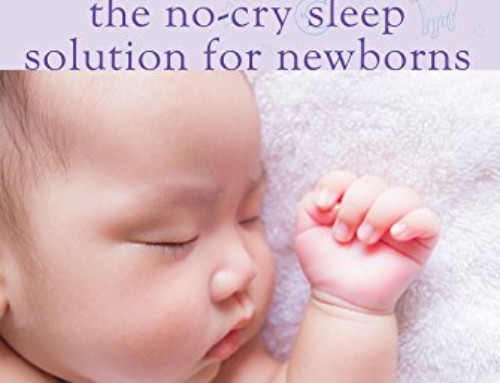By Tracy G. Cassels
Well, apparently the book I wish I could have written has been written. And it’s this one. Christine Gross-Loh, author of Diaper Free Baby, has once again returned to the cross-cultural aspects of parenting in Parenting Without Borders. Only instead of tackling one particular issue, she has managed to really capture cross-culture parenting in developed nations across a variety of parenting topics. The ones many North American parents struggle with.
The book starts with what could be a piece on EP regarding infant sleep. And if there’s one way to win me over, it’s to rightfully point out that co-sleeping and nighttime responsiveness are cross-cultural staples of infant sleep. I found myself not only nodding my head, but exclaiming “Yes!”, “Exactly!”, or “See?!” to no one in particular (though it did garner me some strange looks from my husband at times). The entire book is not on sleep (though I believe one probably could be done) and Dr. Gross-Loh (yes, she has a Ph.D.) moves on to cover eating, academics, play, and so much more. And it is all equally fascinating.
Though the overarching point of the book was to discuss various parenting techniques around the world most of the time it became about US parenting versus other, with the other practices all fitting quite nicely into one practice with minor variants. For example, in the play chapter, the US with its limited free play time for kids of all ages (through structured daycares and children being shepherded from one activity to another day after day) is compared to many other countries that all have a high emphasis on simply letting children have lots of free time to play. By focusing on specific countries that we know are on the other end of the pendulum swing, Dr. Gross-Loh makes the contrast seem even starker than it might be. That is, we know that not all other countries have the degree of free play that younger children in Germany or Finland or Japan (yes, Japan) have. She clearly picks the countries that have the most profound differences which is great when the point is to compare and contrast, but we must remember that for every Finland, there’s a Canada or UK which is more akin to the US in some of these areas (so don’t feel so alone US parents).
And yet what can’t be denied is that the comparison of outcomes clearly favours other styles of parenting—even when we only consider the goals of US parents. When we think of the US and countries with similar parenting philosophies, I don’t think it’s any small secret that as a whole children are not faring as well as those in other developed countries. What Dr. Gross-Loh manages to make very clear using cross-cultural comparisons is that while most of the US parenting styles are built on the notion of individuality and independence, our children fail to achieve of the level of independence that these other cultures achieve, which value dependence at a young age and following a child’s biological development. Notably, the main difference between the US (and Canada and even the UK to a certain degree) and other cultures is the reversal of parental involvement. Instead of being highly involved and available during infancy and toddlerhood and then allowing more independence as children age, many Western parents do it backwards. They force separation and try to force independence in infancy and toddlerhood then hover as their children grow older, taking away responsibility and independence from their children just as they are ready for it. And we can see this happen across a host of practices, making one wonder why on earth US parents continue to parent as they do.
Although I imagine most parents will want to undergo an overhaul on their parenting after reading this, not all of the parenting practices will be things parents want to embrace. I found myself saddened when reading the section on academic achievement in other cultures where the pressure to do well on high school kids leads to depression and suicide. The chapter on food was intriguing but I certainly still feel a more relaxed style towards meals works best for our family. However, even when I wouldn’t choose a particular practice, it was fascinating to read about how other cultures approach the socialization of children and to increase my arsenal of parenting techniques. I’ve already embraced some of what I’ve read in our own family (and we were pretty different from most North American parents) and can see the improvement in a short time.
In short, if you read one book on parenting this year, this should be it. It is engaging, informative, and eye-opening. And I suppose I can cross “book” off my list of things to do now… but I couldn’t have done a better job myself.
To purchase Parenting Without Borders, you can click on the link below:






I definitely want to read this book. And this reminded me of the article about how the Americans may be the weirdest people in the world (http://www.psmag.com/magazines/pacific-standard-cover-story/joe-henrich-weird-ultimatum-game-shaking-up-psychology-economics-53135/ and link to the paper: http://www2.psych.ubc.ca/~henrich/pdfs/Weird_People_BBS_final02.pdf). They say about Americans:
“again and again one group of people appeared to be particularly unusual when compared to other populations—with perceptions, behaviors, and motivations that were almost always sliding down one end of the human bell curve.” Interesting how it matches the US parenting practices being different than the ones in most of the rest of the world.
I purchased this book and am halfway through it and I find it horribly depressing. There are so many cultural differences that are better than what’s done in the US but it’s nothing I personally can change. I feel like I have to move over seas for my child to go to school or learn to eat or else be stuck in a toxic environment like America!
[…] Review: Parenting Without Borders […]
[…] Review: Parenting Without Borders […]